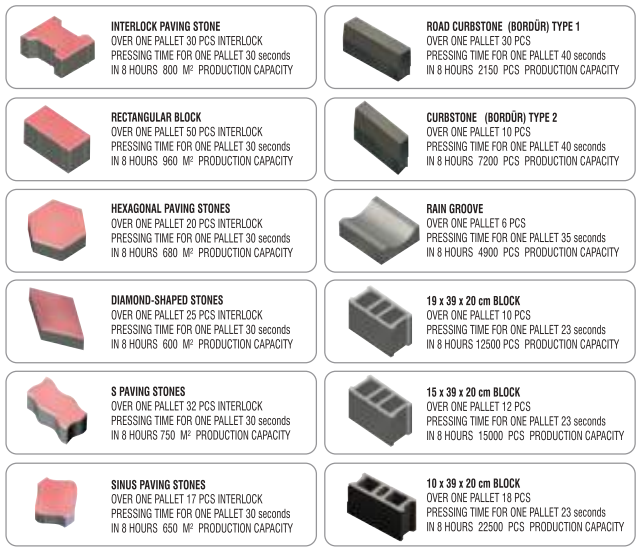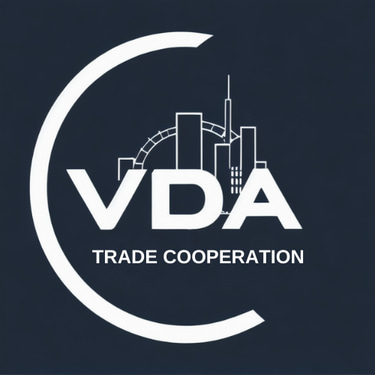Concrete Paving Stone and Block Machines and the Products They Produce
5/22/20245 min read


Concrete paving stones and blocks have become integral elements in modern construction, particularly in landscaping, road construction, and urban infrastructure projects. These durable and aesthetically pleasing products are manufactured using advanced concrete paving stone and block machines. These machines allow for the mass production of high-quality paving stones, blocks, and other concrete elements, providing builders and contractors with reliable solutions for a wide range of applications. This essay will explore how these machines operate, the different types of products they can produce, and the applications of concrete paving stones and blocks in the construction industry.
How Concrete Paving Stone and Block Machines Work
Concrete paving stone and block machines are designed to automate the production of concrete units, ensuring efficiency, consistency, and cost-effectiveness. The machines typically involve the following stages:
1. Raw Material Preparation: The first step in the process is the preparation of raw materials, which include cement, sand, aggregates (crushed stone or gravel), water, and additives to enhance the properties of the concrete. These materials are fed into the machine’s mixing system, where they are thoroughly blended into a uniform concrete mixture.
2. Molding and Compaction: The mixed concrete is transferred into molds that give shape to the paving stones or blocks. Compaction is then applied using hydraulic or vibration systems to ensure the concrete is dense and free from air pockets. The use of high pressure and vibration ensures that the products have the strength and durability required for heavy-duty applications like road surfaces or load-bearing walls.
3. Curing: After molding, the concrete products must cure to reach the desired strength. Many machines have integrated curing systems where the blocks or paving stones are subjected to controlled temperature and moisture conditions. Curing chambers with steam are often used to accelerate the hardening process, allowing faster production cycles and ensuring uniform product quality.
4. Demolding and Stacking: Once the concrete units have cured, the machine demolds them and automatically stacks them for storage or transport. Depending on the machine’s automation level, this process can be fully or semi-automated, optimizing the production process and reducing manual labor.
5. Finishing: Some machines offer additional finishing options, such as surface texturing or coloring. This allows manufacturers to produce decorative paving stones with unique patterns, textures, and colors to meet specific architectural or landscaping demands.
Products Produced by Concrete Paving Stone and Block Machines
Concrete paving stone and block machines are versatile and capable of producing a wide range of products. These products vary in size, shape, and function, allowing for their use in various construction and landscaping projects. Some of the common products include:
1. Concrete Paving Stones: These are the most widely recognized products from these machines. Paving stones, also known as pavers, are typically used in the construction of driveways, walkways, patios, and public spaces. They are available in various shapes, including rectangular, square, hexagonal, and interlocking patterns. Paving stones are known for their durability, weather resistance, and aesthetic appeal, making them ideal for both residential and commercial applications.
2. Concrete Blocks: Concrete blocks are fundamental elements in the construction of walls, buildings, and retaining structures. They come in different sizes, ranging from standard hollow blocks to solid concrete bricks. These blocks are known for their strength and load-bearing capacity, making them ideal for structural applications. They can also be produced in decorative forms for use in architectural facades or garden walls.
3. Interlocking Paving Blocks: Interlocking pavers are a popular choice for road surfaces, parking lots, and pedestrian pathways. Their interlocking design allows them to be laid without mortar, making them easy to install and replace if damaged. They are highly durable and can withstand heavy traffic, making them ideal for urban infrastructure projects. Interlocking pavers also come in various colors and patterns, providing architects with flexibility in design.
4. Curbstones: Curbstones, also known as kerbstones, are used along roadways and sidewalks to define boundaries and improve drainage. Concrete paving stone machines can produce these elements in various sizes and shapes, ensuring they meet specific project requirements. Curbstones are essential for urban infrastructure, helping to delineate roads and walkways while also adding aesthetic appeal to public spaces.
5. Concrete Slabs: Slabs are larger concrete units used for flooring, patio surfaces, and sidewalks. They can be produced in various thicknesses and sizes to meet the needs of different projects. Concrete paving stone machines allow for the production of custom-sized slabs that are often used in landscaping, pedestrian pathways, and industrial flooring.
6. Grass Pavers: Grass pavers are a specialized type of interlocking paver with gaps designed to allow grass or soil to grow through them. They are commonly used in eco-friendly construction projects, such as green parking lots and walkways. Grass pavers help reduce stormwater runoff by allowing water to infiltrate into the ground, making them a popular choice for sustainable urban development.
7. Retaining Wall Blocks: These blocks are used in the construction of retaining walls, which help support soil in sloped areas. Retaining wall blocks are often designed with interlocking mechanisms to enhance stability and make them easier to assemble. These blocks are widely used in landscaping projects, highway embankments, and terracing.
8. Decorative Concrete Elements: Some machines are equipped to produce custom decorative elements such as ornamental blocks, balustrades, or decorative paving stones with intricate patterns. These products are popular in architectural designs, adding a decorative touch to gardens, patios, and public spaces.
Applications of Concrete Paving Stones and Blocks
The products produced by concrete paving stone and block machines are essential in various infrastructure and construction projects. Some of the key applications include:
1. Landscaping and Garden Design: Concrete paving stones and blocks are widely used in residential and commercial landscaping projects. They are commonly employed in the construction of walkways, patios, garden paths, and outdoor seating areas. Their durability, ease of installation, and aesthetic flexibility make them ideal for creating beautiful outdoor spaces.
2. Urban Infrastructure: Interlocking pavers and curbstones are commonly used in urban infrastructure projects such as pedestrian pathways, public squares, and parking lots. They offer long-term durability, resist heavy traffic, and provide design flexibility for architects and urban planners.
3. Road Construction: In many regions, interlocking concrete pavers are used for road surfaces due to their ability to withstand the pressures of vehicular traffic. They are a preferred choice for parking lots, bus stops, and intersections where durable yet easily replaceable surfaces are needed.
4. Residential and Commercial Buildings: Concrete blocks are the backbone of many construction projects. They are used in building foundations, walls, and load-bearing structures due to their strength and versatility.
5. Sustainable Urban Development: Grass pavers and permeable interlocking paving stones are used in sustainable construction projects, providing environmentally friendly solutions for managing stormwater runoff and reducing urban heat islands.
Conclusion
Concrete paving stone and block machines play a crucial role in modern construction, producing a wide variety of high-quality concrete products. From paving stones for residential landscaping to interlocking blocks for road surfaces, these machines provide the construction industry with durable, versatile, and aesthetically pleasing materials. The ability to produce custom-sized, reinforced, or decorative concrete elements makes these machines indispensable in urban development, infrastructure projects, and sustainable construction. As the demand for efficient and eco-friendly construction grows, the role of concrete paving stone and block machines will continue to expand, shaping the future of urban environments worldwide.
